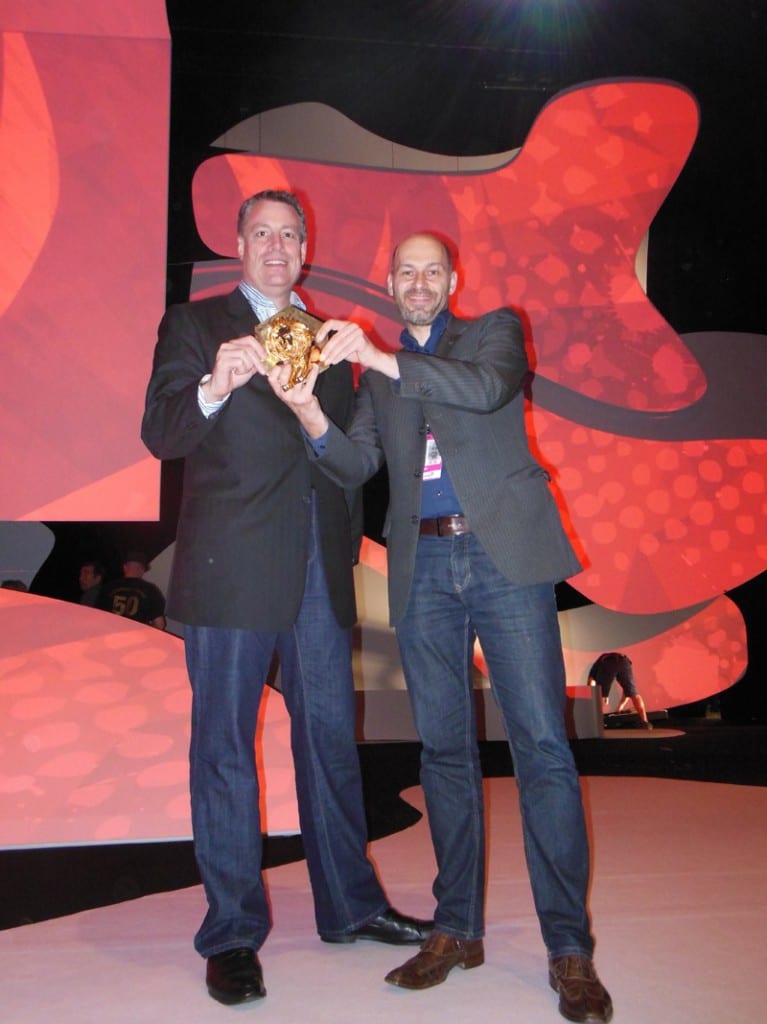Many in our industry have spent the last few years fearing that PR firms were doomed at Cannes. After all, the “creative agencies,” which at Cannes are generally considered to be the ad agencies, were winning the vast majority of PR Lions, implying that maybe PR didn’t have the creative goods. Why did advertising seem to have exclusive ownership over these awards? This was a question that Ketchum set out to answer, and claiming PR’s right to be in the same league as creative agencies became my personal mission as global awards director.
 While the final award counts indicate that PR is not yet on equal footing, as an industry we made remarkable strides at Cannes this year. For the first time, PR’s own “creative agencies” noticeably peppered the winning landscape. Ketchum had an unprecedented night with 12 shortlisted campaigns that resulted in one gold, two silvers, and six bronzes. It was like going from zero to 60 compared to 2012.
While the final award counts indicate that PR is not yet on equal footing, as an industry we made remarkable strides at Cannes this year. For the first time, PR’s own “creative agencies” noticeably peppered the winning landscape. Ketchum had an unprecedented night with 12 shortlisted campaigns that resulted in one gold, two silvers, and six bronzes. It was like going from zero to 60 compared to 2012.
So now that we broke through the Cannes creative glass ceiling, how do we stay there?
Lesson 1: You can’t win the lottery without buying a ticket.
The PR industry is learning to play the numbers game. We haven’t won much because we haven’t entered much. This year, simply put, there were more PR entries to get the job done.
Lesson 2: Get behind the integrated creative work.
A lot of PR Lions winners are programs with heavy paid and earned media components. Some earned media-only campaigns can win (and we had plenty that made the shortlist), but the truth is that larger integrated campaigns tend to earn more at Cannes. Multiple channels and larger shared budgets could be the reasons integrated programs have an advantage. We collaborated this year with our agency partners on winnable work with multiple moving creative parts.
Lesson 3: It’s human nature to reward the work that makes one feel good about the business.
There’s a reason that ”good works“ with universal humanitarian value or socially progressive themes dominate Cannes. The jury chair of the Creative Effectiveness Awards said it all when she proclaimed, “What could be more proof of true creative effectiveness than saving lives?” Our programs can’t always save lives, but we can do a better job centering our programs on human truths, exhibiting more heart and soul, and creating more genuine social value on some level. Ketchum’s top winner was an original and creatively breathtaking pro bono project for tree conservation. Our clients Danone, Monster High and USFRA creatively took on relevant social problems and themes, and this clearly resonated with juries.
Lesson 4: Winners measurably achieved genuine business or social impact.
While not a new theme, winners clearly took measurement seriously and measured effectiveness in multiple ways – from the outset. Creative idea and creative impact are on equal footing at Cannes, which means you must have proof – not just great publicity.
Lesson 5: Don’t be satisfied with good.
Demanding nothing less than greatness in our creative work must become an ingrained mindset. Why shouldn’t every program we do have the potential to win Cannes? Approach every challenge from the outset by putting it through “the Cannes test,” ensuring that every piece of work has a clear and sticky idea. Set out to win from the start.
Lesson 6: Cannes winners are the best storytellers.
“Storytelling” is a big theme here this year, and it’s coming through in the award winners too. We were more successful because we honed our entries and told our stories better – from words (the entry summary) to visuals. A winning entry needs to be as creative as “the creative.” Still, PR has to become more effective in capturing the story visually as it unfolds: target reactions and emotional impact; the building of; behind the scenes. These things can’t be recreated later. No budget? Pick up your smartphone and start shooting.
To my PR industry colleagues: It’s high time to assume our rightful identity as a “creative agency.” I know we can do it, because that’s what we are.


